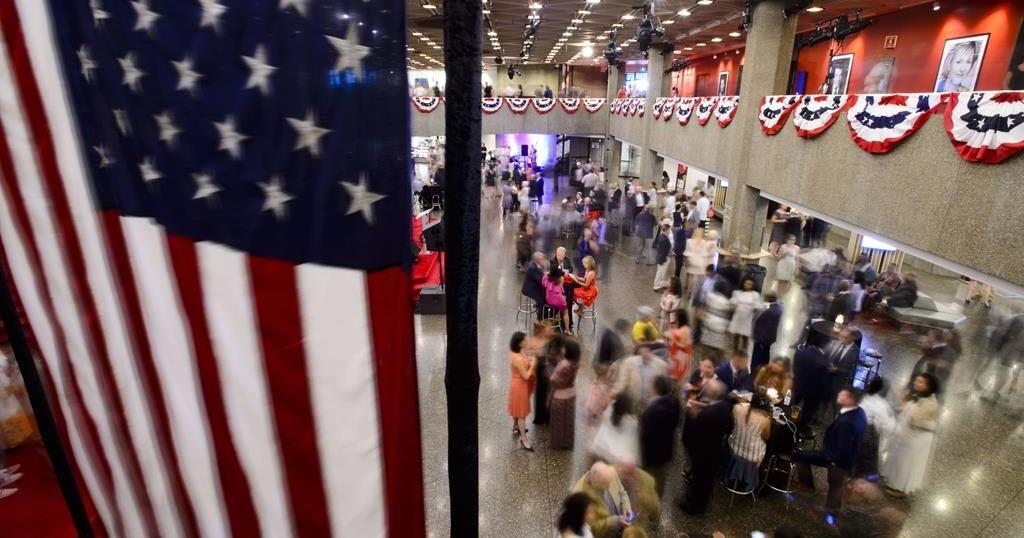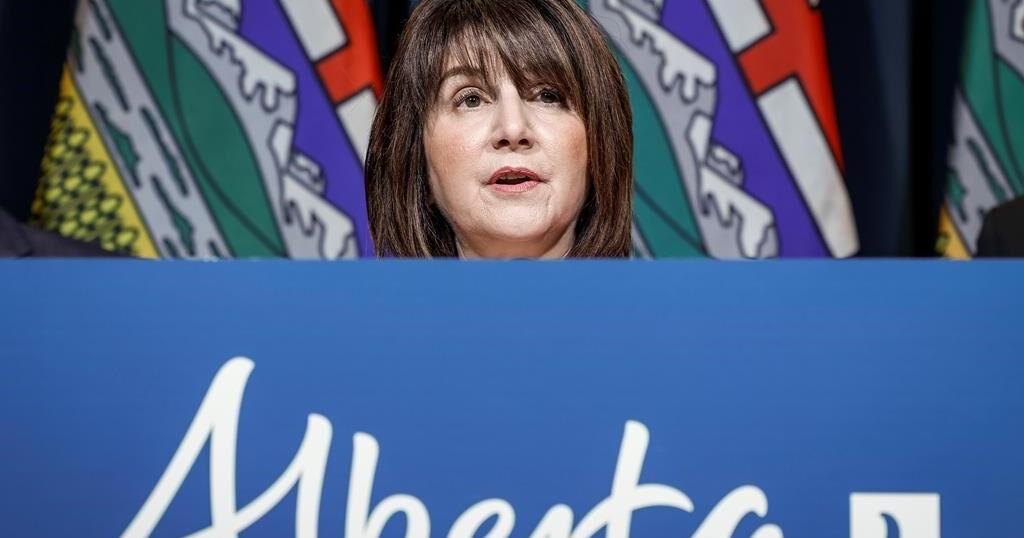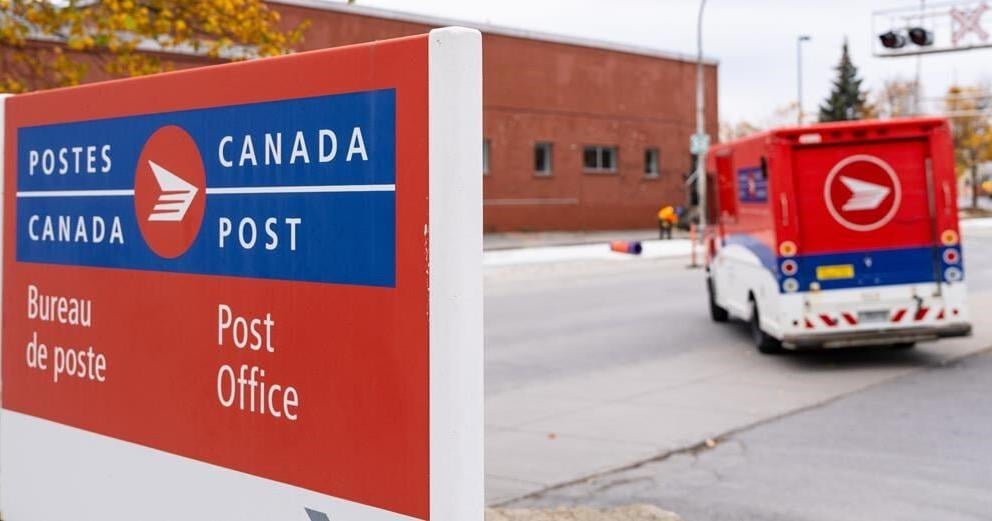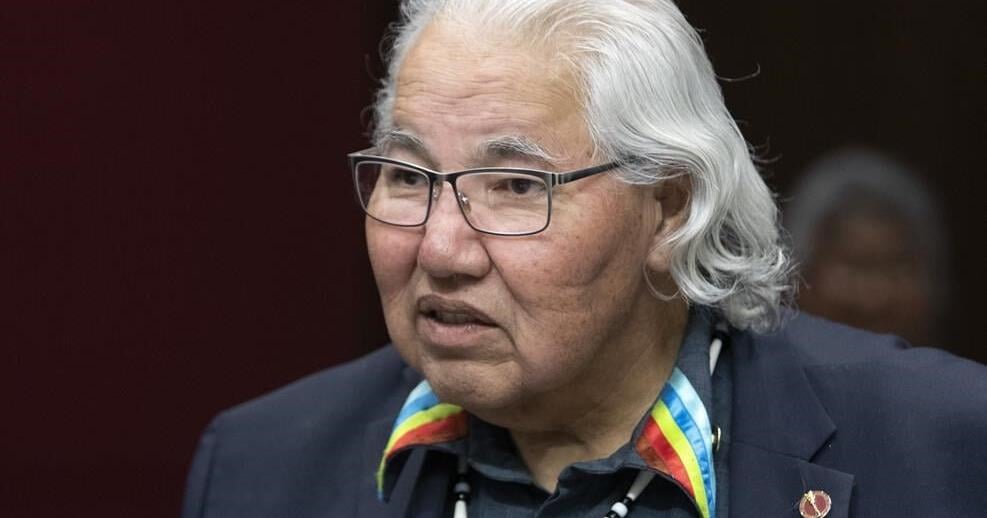OTTAWA – MPs, diplomats and political staff gathered around the parliamentary precinct to anxiously take in preliminary results of a U.S. presidential election that they all agreed would have an enormous impact on Canada and the world.
“There’s a lot of nervous energy in the room tonight,” said Gary Keller, who was chief of staff to John Baird, the former Conservative foreign minister.
“This one has so much potential impact on our economy, our society.”
U.S. voters cast their ballots Tuesday in a race between starkly different visions for their country’s future, with either former president Donald Trump or Vice-President Kamala Harris. The two have proposed policies that could disrupt commerce with Ottawa’s closest trading partner, and have deep repercussions for Canada’s defence.
As results streamed in on large screens, Keller said he was anxious about the “knife-edge” election.
“Canadian businesses just have to be prepared for some challenges over the next four years, no matter who wins,” said Keller, a vice-president with government relations firm StrategyCorp.
He noted that Trump and Harris have both campaigned on protectionist policies, which could pose a significant threat to Canada’s economy.
Trump has pledged to bring in a 10 per cent across-the-board tariff — something the Canadian Chamber of Commerce believes could cost the Canadian economy around $30 billion per year.
In 2020, Harris was one of just 10 senators who voted against the Canada-U.S.-Mexico Agreement. She recently said the CUSMA deal doesn’t adequately protect American jobs.
Before result-watching parties kicked off in the bars surrounding Parliament Hill, the federal Liberals told reporters they’ve spent months laying the groundwork for Ottawa to be in a better position to manage trade negotiations with the next American president than during Trump’s first term.
At that point, the Liberals undertook a “Team Canada” approach of having premiers, mayors, unions and business leaders engage with their American counterparts, as Trump called for an end to the NAFTA trade deal.
The push resulted in Canada keeping much of its key access under CUSMA. Whoever takes over the White House will oversee the scheduled review of that deal in 2026.
Foreign Affairs Minister Mélanie Joly said the government will use its Team Canada approach to defend Canadian interests, and that she has also been in touch with other foreign ministers and world leaders about how to work with the next president.
“We have the strongest and, I think, most important relationship as a country with the U.S.,” Joly said.
Innovation Minister François-Philippe Champagne said the goal over the last several months has been to define Canada as a critical and strategic partner, and not just a friendly neighbour to the north.
“The focus of our friends in the United States is national security. National security and economic security are one. I think there is a better understanding today that the strategic relationship that we have is serving North America’s national security,” Champagne said.
Yet the head of the American Chamber of Commerce in Canada, Rick Tachuk, said various irritants in the bilateral relationship could cause Washington to restrict trade, such as energy, defence and digital-services regulation.
“There’s a whole host of issues that are critical, that we need to resolve in part before we get to the CUSMA review in 2026,” he said. adding that the composition of the House of Representatives will also greatly shape American economic policies toward Canada.
Iceland’s ambassador to Canada, Hlynur Gudjonsson, said his country was impressed at Ottawa’s ability to keep strong trade ties during Trump’s first term.
While he expected a good relationship with Trump or Harris, he said his country wonders how a Trump presidency will approach the NATO military alliance.
Trump has been highly critical of NATO allies — particularly those, like Canada, that are not meeting the agreed-upon spending target — accusing them of failing to pull their weight and calling the alliance “obsolete.”
Canada does not plan to reach the target of spending two per cent of GDP on defence until at least 2032.
Harris has said her administration would uphold mutual defence pacts and continue steadfast support for Ukraine.
Defence Minister Bill Blair said he believes either administration will recognize the work Canada is doing to boost defence spending.
“It takes time to build new battleships, it takes time to build the new submarines we’re going to require, and deliver the airplanes we need,” Blair said.
Gudjonsson said concerns about NATO likely added to a European tendency to be more in line with Democrats than Republicans.
“Kamala Harris would be very happy if the Icelanders were voting for her,” he said. “That’s the case in Europe I think in general.”
A handful of European diplomats declined to comment on the race, peering anxiously at vote tallies between swigs of beer and cocktails.
Liberal MP Jean Yip said she was nervous about the results.
“I hope for the best; we keep our fingers crossed that it will be all right,” the Toronto MP said.
“We just want the best president possible, for Americans and for Canadians,” she said, without specifying who that would be.
Earlier, Joly noted that her government worked with three different U.S. administrations over the last decade, and built relationships with both Republicans and Democrats.
Yet it’s not a given that a Justin Trudeau-led government will represent Canada in trade talks. There is a possibility that a precarious Parliament could trigger a snap election before the negotiations start in earnest.
Conservative Leader Pierre Poilievre said on social media Tuesday a Conservative government would “drive a hard bargain” with Washington on softwood lumber and buy-American policies.
In question period, Poilievre attacked the Liberals for failing to get a deal with the U.S. to end softwood lumber tariffs, and accused the government of capitulating to the Americans during the last round of trade negotiations.
Trudeau responded in French that “it was the Conservatives, including Stephen Harper, who were encouraging us to back down and not offend the Americans” during the CUSMA negotiations.
“On the contrary, we stood up for ourselves we protected supply management, protected steel and aluminum workers, we protected jobs right across this country,” the prime minister said.
David Cohen, the U.S. ambassador to Canada, said in an interview that he sees the trade relationship continuing with little disruption no matter who wins the election.
“I’ve not heard any president in my lifetime, and I’ve certainly not heard either Donald Trump or Kamala Harris say, we want to blow up this $3.4-billion-a-day trade relationship that exists between the United States and Canada,” Cohen said.
“So, the Team Canada approach that Canada’s been using — I’ve said this before and I’ll say it again — is a powerful outreach mechanism which is useful to doing outreach and communication with a variety of stakeholders and constituents who all have a role to play in nurturing and growing the U.S.-Canada relationship, independent of the presidential election.”
Cohen added that Canada is the biggest trading partner for 36 states and he doubts any administration would want to jeopardize the millions of jobs tied to that cross-border trade.
This report by The Canadian Press was first published Nov. 5, 2024.
— With files from Kelly Geraldine Malone

























